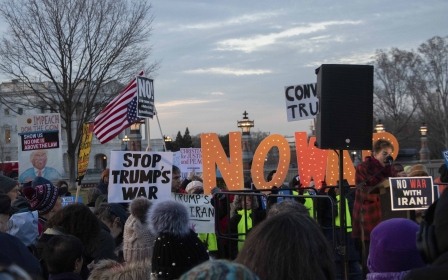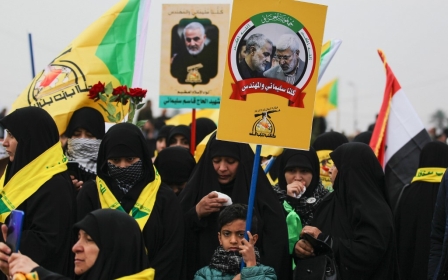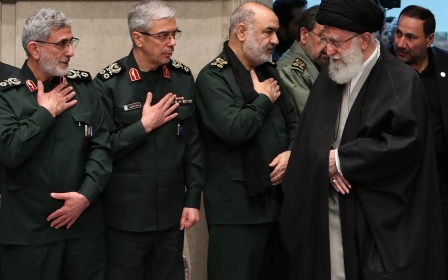US sanctions eight senior Iranian officials over ties to missile attacks

The United States imposed new sanctions on Iranian industries and officials on Friday in retaliation for Tehran's missile attack on US troops in Iraq this week, senior Trump administration officials said.
Treasury Secretary Steven Mnuchin and Secretary of State Mike Pompeo made the announcement at a news conference at the White House.
“We are announcing additional sanctions on the Iranian regime as a result of the attack on US and allied troops,” Mnuchin said.
The eight officials are believed to have been involved in this week's ballistic missile strikes against bases in Iraq; however, only seven individuals were listed on the Treasury Department's website.
All seven of the newly sanctioned officials appear to have links to Iran's Supreme Leader Ayatollah Ali Khamenei and the Islamic Revolutionary Guard Corps (IRGC).
The newly sanctioned individuals include: Ali Shamkhani, the secretary of Iran's Supreme National Security Council; Mohsen Rezai, a Khamenei adviser; Mohammad Reza Naqdi, the deputy coordinator of the IRGC; Mohammad Reza Ashtiani and Ali Abdollahi, senior Iranian military leaders; Ali Asghar Hejazi, the director of Khamenei's security office; Mohsen Qomi, Khamenei's deputy adviser for international affairs and adviser on international communications.
US President Donald Trump also issued an executive order that targets sources of revenue that the Iranian government allegedly needs to fund its nuclear program and its proxy networks.
The executive order authorises the imposition of sanctions on the industries of construction, manufacturing, textiles and mining.
"This order will have a major impact on the Iranian economy, authorising powerful secondary sanctions on foreign financial institutions," Trump said in a statement following the news conference.
On Friday, Mnuchin and Pompeo also announced sanctions that target Iran's aluminum, copper, iron and steel industries.
The sanctions target anyone involved in the "sale, supply, or transfer" of goods within those industries that were already sanctioned in May 2019.
An additional 22 entities and three vessels were specifically sanctioned for operating within Iran's sanctioned metals sector, including 17 Iranian metal producers and mining companies.
Among those sanctioned for their involvement in Iran's metal sector are Beijing-based trading company Pamchel Trading Beijing and its alleged "front company", Power Anchor, based in the Seychelles.
The sanctions, promised earlier this week by Trump, "will cut off billions of dollars of support to the Iranian regime", Mnuchin said.
Retaliation for missile attacks
On Wednesday, Trump promised to impose "punishing economic sanctions on the Iranian regime" after Tehran launched missile strikes on bases in Iraq.
There were no casualties in those attacks, which were carried out in retaliation for a US drone strike last week that killed senior Iranian military leader Qassem Soleimani.
During a news conference on Thursday, Trump said further military action against Iran "would all depend on the circumstance".
Still, he said he was also open to negotiating a new nuclear deal with Iran.
"For me it's about nuclear weapons more than anything else," Trump said. "Iran cannot have a nuclear weapon."
"We'll see whether or not they want to negotiate, maybe they want to wait 'till after the election and negotiate with a weak Democrat," he said.
In 2018, Trump pulled the United States out of the Obama-era nuclear deal with Iran, a major agreement reached between Tehran, Washington, and five other countries.
The move marked the beginning of the Trump administration's "maximum pressure" campaign, as major sanctions were reimposed, crippling the export of Iran's oil and its economy and freezing US assets of many top officials.
While the Trump administration said that the sanctions have halted billions of dollars in annual revenue for Iran, the World Bank on Wednesday released a report that said Iran’s economy should soon recover.
"Iran's economy is expected to stabilise after a contractionary year as the impact of US sanctions tapers and oil production and exports stabilise," the report said.
Middle East Eye delivers independent and unrivalled coverage and analysis of the Middle East, North Africa and beyond. To learn more about republishing this content and the associated fees, please fill out this form. More about MEE can be found here.





